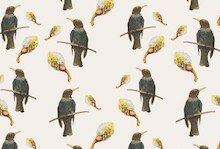Lisa Bellear was a formidable presence on the Australian arts scene, achieving national and international recognition in a range of fields. She was a poet, photographer, a skilled interviewer, broadcaster, comedian and academic. Her photographic work was exhibited in Athens during the 2004 Olympics and also exhibited during the Beijing Olympics in 2008. She was one of the founders of Not Another Koori Show, which has run for over ten years on the Victorian community radio station 3CR. Bellear’s poetry is uncompromising: at once fierce, unsettling and filled with both deeply felt anger and love. One of its most remarkable features is that while it is built around a performative voice, Bellear’s skills as a poet convey the force and expansion of that voice to the white space of the page.
Bellear’s work is a harrowing and a reckoning. Intensity and integrity form a powerful circuit here, as she takes to task the history and current realities and repercussions of Australia’s invasion. Her poetry is able to move between sharply lucid portrayals of poverty and dispossession, community and hope, charting the struggle for survival and change. She gives voice to deep-seated frustration and rage, making the unspeakable in Australian history, past and present, speak with clarity, compassion and a righteous anger. All the while, her work expresses a sense of joy in community, strength of commitment and the will to see and effect change. Despite the deep reaches of pain evoked in her work, there is still optimism and the complexity of a survivor’s humour. Throughout, there is a startling honesty, which lends every poem a striking clarity of vision and statement.
Bellear’s work extends from a boundless energy, activism and political engagement, premised upon an immediately apparent and inspiring honesty and integrity. This is not simply literary. Hers is a work of change, coupling a savage wit with the savageness of experience; the quietude of language with the sorrows of the past and present; the political struggle with the struggle to understand; reconciliation with recognition. Her work is plainly though aggressively spoken. Her poems speak directly from the centre of experience, in the language of that experience.
Bellear herself best summed up the demands and gift of her poetry: “You can allow your eyes and heart to see. See the injustice, cruelty, and you can also hear the laughter and the love.”







